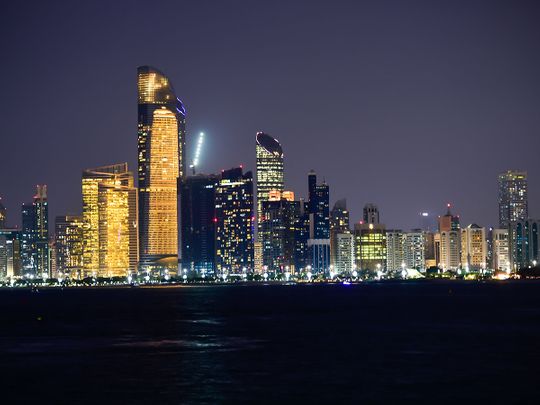
Abu Dhabi: The Eid break has ended, but restrictions on nightly movement are still in place across Abu Dhabi Emirate.
The National Sterilisation Programme is conducted between midnight and 5am every day, and authorities have reminded residents to adhere to the movement restrictions during this time. Over the weekend, Abu Dhabi Police also called upon drivers to plan their journeys with the timings in mind, including those who are planning to drive down to the capital city, Al Ain or Al Dhafra.
Abu Dhabi launched the sterilisation drive, aimed at curbing the spread of COVID-19 variants, on July 19, coinciding with the start of the Eid Al Adha public holiday. It followed previous announcements by officials that a rise in COVID-19 cases had been witnessed in the UAE following the Eid Al Fitr period in May.
Entry restrictions
Along with the movement restriction, the Abu Dhabi Emergency, Crisis and Disasters Committee for the COVID-19 pandemic also mandated that all travellers must present negative COVID-19 test results to gain entry into the emirate, whether or not they are vaccinated. This was a departure from entry restrictions that previously allowed vaccinated travellers to enter without presenting a negative test result.
Under the new protocols, every person aged 12 years or more entering Abu Dhabi must present a negative PCR or DPI test result. PCR test results are valid for 48 hours, with follow-up PCR testing mandated on Day 4 and Day 8, and DPI tests are valid for 24 hours, with follow-up PCR testing a must on Day 3 and Day 7. In both cases, the day of entry counts as Day 1, and DPI tests cannot be used for consecutive entries.
Capacity restrictions
Capacity restrictions were additionally implemented across a number of public facilities as a means to ensure social distancing. Public beaches, public parks private beaches, swimming pools, restaurants, cafés, gyms, spas, buses, and public ferries can accommodate up to only 50 per cent of their total capacity, whereas shopping malls can operate at only 40 per cent capacity. Cinemas are allowed to accommodate moviegoers at up to 30 per cent of their capacity.
Public taxis, on the other hand, can accommodate up to three passengers if they are five-seater vehicles, and four passengers if they are seven-seater vehicles.
Screening
Residents and visitors to Abu Dhabi are also currently screened for COVID-19 when entering malls and amusement parks. Every visitor aged 12 years or more must test negative on EDE scanners to gain entry.
Home quarantine extension
In addition, Abu Dhabi increased quarantine durations for four of the six groups of people eligible for home quarantine. In particular, vaccinated residents who have come into contact with a COVID-19 patient, as well as those who have returned from a place that is not on the Green List, must now quarantine for seven days, up from five days. A follow-up PCR test is prescribed on Day 6.
On the other hand, residents who are not fully vaccinated must quarantine for 12 days if they have come into contact with a COVID-19 patient, or have returned from a country not on the Green List. A follow-up PCR test must be taken on Day 11.
Like Our Facebook Page For Latest News